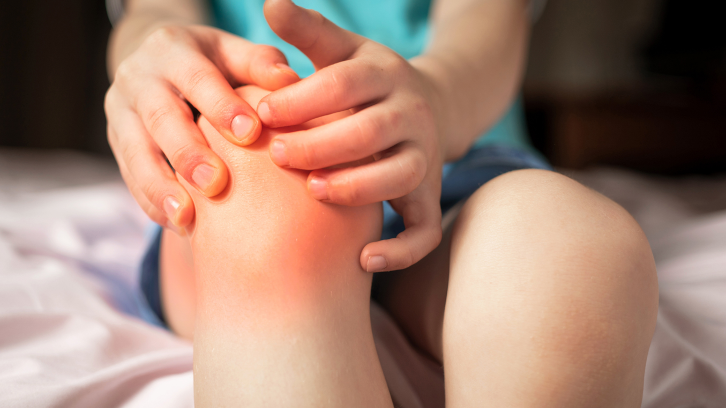Real-world psychosocial impact among patients with juvenile idiopathic arthritis and families in Spain

A study carried out by researchers from the Department of Pediatrics at UAB evaluates the psychosocial impact of juvenile idiopathic arthritis on Spanish children and teenagers. This chronic disease is a challenge for both patients and their families, not only physically, but also in terms of integration, emotional, and financial difficulties. For this reason, psychological care and social support are crucial in the process.
Juvenile idiopathic arthritis (JIA) is a chronic autoimmune disease that affects children and adolescents, causing pain and movement limitations due to joint inflammation. Despite medical advances that allow for symptom control, the psychosocial impact of this disease is considerable for both the patients and their families. A recent study, in which researchers from UAB participated, focused on assessing how JIA affects the daily lives of patients and their family environments, with the goal of providing a broader view of the consequences of the disease beyond physical symptoms.
The study was conducted through surveys of patients diagnosed with JIA, as well as their families, in different pediatric rheumatology units in Spanish hospitals. The study revealed that patients with JIA experience a significant emotional burden. Adolescents, in particular, face additional challenges related to identity and social integration due to the physical limitations imposed by the disease. Chronic pain and restrictions in daily activities, such as sports and social interactions, are a constant source of stress. Additionally, patients reported a higher prevalence of anxiety and depression symptoms compared to the general population.
For families, JIA not only represents a physical challenge for the patient but also an emotional and financial challenge. Parents experienced high levels of concern for their children's health, which affected their psychological well-being. Managing medical treatments, frequent doctor visits, and adapting to a lifestyle that includes special care for the children also generated a high degree of stress. This impacts family relationships, as parents have to find a balance between the demands of the disease and their work responsibilities and other aspects of family life.
The results also showed that, although medical treatments are essential, psychological care and social support are equally crucial. Patients and families mentioned the importance of having a support system that includes mental health professionals, family support groups, and educational resources to help them manage the daily challenges of the disease.
Department of Paediatrics, Obstetrics and Gynaecology, and Preventive Medicine and Public Health
Universitat Autònoma de Barcelona
References
Calvo Penadés I, Moreno Ruzafa E, Calzada-Hernández J, Mosquera Angarita J, López Montesinos B, Bou R, López Corbeto M, Sánchez-Manubens J, et al. (2024) Real-world psychosocial impact among patients with juvenile idiopathic arthritis and families in Spain. Pediatric rheumatology online journal, 22(1), 102. https://doi.org/10.1186/s12969-024-01035-6

